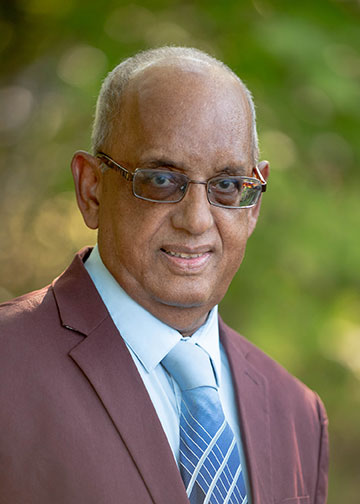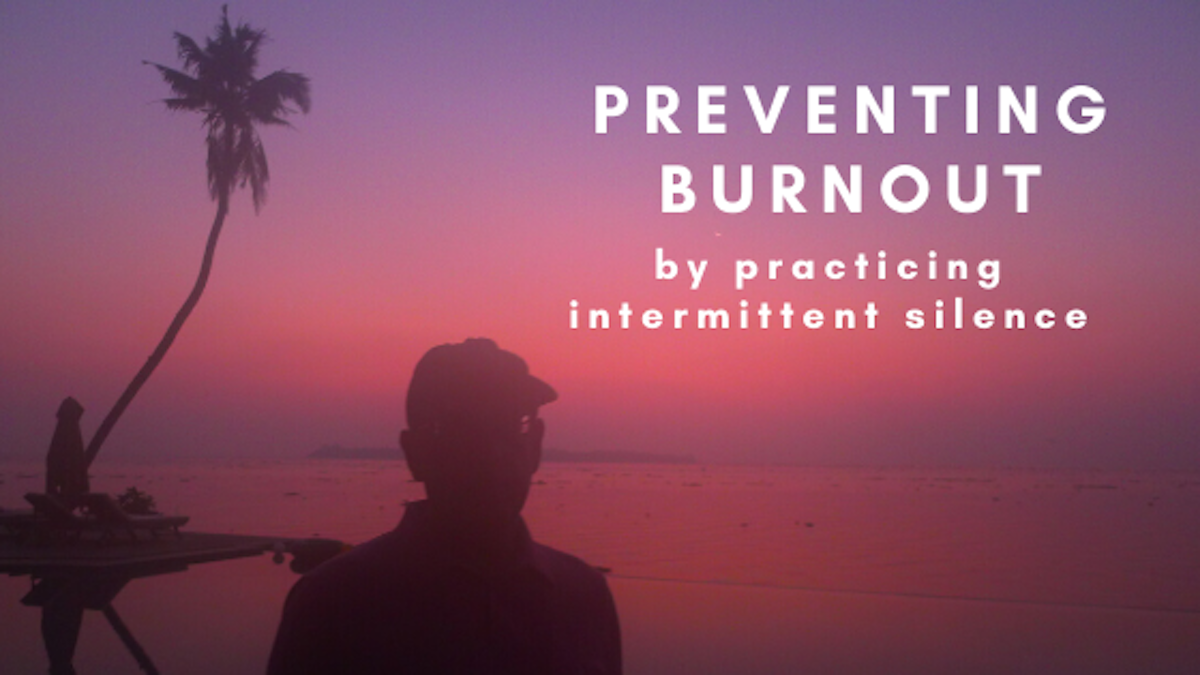I once gave a presentation to hospital board members on the topic of physician burnout. I positioned much of my presentation around meditation. Meditation, I said, is the act of spending quality time with yourself. But, I argued, meditation does not have to be complex—it can be as simple as committing to spend 10 minutes a day with yourself. After I said that, one hand went up.
“Which 10 minutes?”
I explained that we should include those 10 minutes into our routine of life. The most obvious time is when we first wake up or right before we go to sleep. But, even when life gets busy—waiting at the airport or on the plane, or sitting quietly in a bus or a train—we can find pockets of time when we can focus on our inner journey. In fact, the busy times are the times we should try and focus on a moment for ourselves. As I continued, there was a follow up question.
“What do I do in those 10 minutes?”
The question made a lot of sense.
When given the opportunity to be with ourselves, we often do quite the opposite. Maybe it’s that we don’t like to spend time with ourselves, or maybe we just don’t know what to do, or, if we did know what to do, we don’t know how. We check our emails, scroll through social media posts, text or call friends, browse online shopping sights, watch videos on loop, the list goes on.
And, I get it. spending time with yourself can be tough. When we are alone with just our thoughts, it’s easy to sometimes get sad and/or feel down and depressed.
I paused for a moment, gave my answer some thought and said:
“Conserve energy.”
The room was silent. I paused before I continued and felt that it was a silence full of curiosity, waiting to hear what I would say next.
Yes, even ten minutes is enough to help you conserve energy, I explained.
Everyday, we spend energy doing what seem like simple things, and as we do those simple things, like checking our email, over and over, we are like a faucet with a very slow leak—energy drip, drip, drips out of us, until one day, all of a sudden, we don’t feel as if we have any energy left. It might be days, weeks, or even years. This is burnout. It doesn’t happen overnight—it’s a result of a slow loss of energy day in and day out. That’s why it is so important to actively work everyday to restore that energy, and the best way to start is to spend 10 minutes a day, conserving some of that energy. There are three things you can do in those 10 minutes:
- Close your mouth
- Close your eyes
- Watch your thoughts
We spend energy through our eyes, through speaking, and in processing our thoughts. The best way to start conserving energy is to look inwards without any disturbances and to not spend outward energy. Part of this is achieved simply by being silent.
Intermittent Silence: Most meditation retreats want you to stay silent and not speak, express, or communicate during your time there. Oddly enough, this silence can actually be disturbing, and some participants even leave the course before completion.
What does silence for an extended period of time do to you or me? If you just observe the silence for a period of time and you accept it rather than resist or resent it, you can start to feel the growth of silence and the relaxing effect it can bring to your body and mind.
Apart from conserving energy, there is another added benefit that comes with staying silent. Let me introduce an acronym TEA.
T – Thoughts
E – Expression
A – Act
Most of our thoughts are expressed through our speech and our eyes (or face). When we stop expressing thoughts through speaking, even if only for a short period of ten minutes, it teaches us to take a pause before we decide which thoughts to express and when. This is a term I’ve coined—called Intermittent Silence—and it can be applied when talking to a family member, a friend, or the boss, or even before replying to an email. Practicing intermittent silence provides us the opportunity to utilizing a simple yet powerful tool–a little pause between T (thoughts) and E (Expression).
To be continued………….


